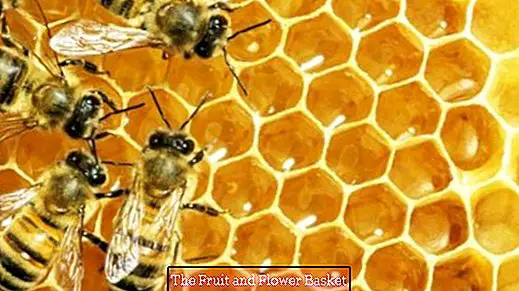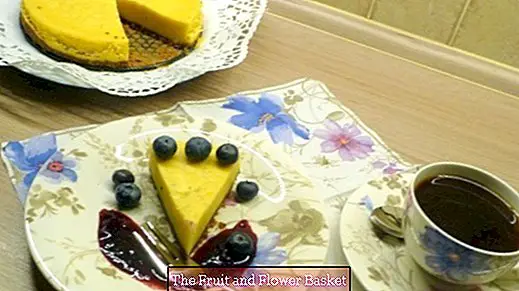Worth knowing about honey, bees and beekeepers
I visited a honey and bee museum with a organic beekeeper in the Bavarian Forest. The most important information about honey and bees are summarized in this tip.
The Germans are "Honey European Champion". With about 1.6kg per capita per year we Germans eat more honey than all our neighbors in Europe. Unfortunately, the honey produced in Germany is not enough: 40% of the honey requirement is covered by imports from Asia, Africa and South America.
- Honey production in Germany
- How long does honey last? shelf life
- Buy honey in Germany while protecting the environment
- What makes organic honey different from normal? Honey?
- Honey for a cold? That's the only way he helps!
- Keep bees yourself. Easier than you think!
Honey production in Germany
Honey is produced in Germany by beekeepers (or their bees). Here are 95% of all beekeepers in Germany hobby beekeepers, each possessing 10 to 20 bee colonies. In a bee colony live about 30,000 bees! Also in your area there are certainly some beekeepers who can provide you directly with German beekeepers honey!
Honey production is almost exclusively done by hard-working bees. If the honeycombs are full of honey, the part is harvested by the beekeeper with a honey extractor? Which the bees have produced too much.
How come? Hibernate bees. Although bees are born in the summer, they only live 60 days and work until they die of fatigue. But the bees that are born in the fall live longer. You no longer need to collect pollen, nectar and water and spend the winter until next year. (However, only the females and the queen.) All males / drones will be kicked out and starved in August.) The bees naturally feed on their honey in winter. And since they do not know how hard winter gets, they always produce more honey than they need. And this overproduction ends up at the beekeeper.
The honey is merely thrown, caught and roughly filtered. That's it already. A natural product of the purest quality without additives.
How long does honey last? shelf life
Even if the expiration date (MHD) indicates otherwise: honey lasts almost infinitely long. Honey was found in pharaoh's tombs, several thousand years old. The honey was still edible. The MHD is due to a law that obliges all beekeepers since 2005 to print a shelf life (2 years) on the honey jars.
Now it comes: This MHD (2 years) but applies from bottling, not from storage. That Honey, which was stored for two years by the beekeeper and then bottled,? Stops? four years in total. One who was bottled after five years,? seven years. You see, the MHD can be safely forgotten with honey.
The beekeeper in the museum has told us: forget the BBD, honey keeps properly stored eternities. And dry and dark at room temperature (so just in the kitchen cabinet with it). But do not put it in the fridge, the honey will only solidify.
Buy honey in Germany while protecting the environment
In Germany in 1913 there were still 2.3 million bee colonies. In 2012 there were only about 622,000 left. However, bees are important for agriculture, as they are necessary for the pollination of plants!
Please buy your honey from the German beekeeper next door. You make a significant contribution to environmental protection and agriculture. Thus, e.g. the fruit yield at the fruit grower by 80% when a beekeeper stops his bee colonies on the orchard at the height of flowering (professional beekeepers travel all over Germany with their bees). The same applies to rape fields, where the yield increases by 60%.
A wonderful win-win situation: The beekeeper gets different? and the farmer / farmer receives higher yields.
This honey is treated as little as necessary. The healthy enzymes remain in it (s.u. cold). In addition, there is no need to resort to imported honey from the supermarket, which is often treated.
If the honey has been heated too much (over 50 degrees), the healthy enzymes are destroyed. This makes the honey permanently liquid. So you can imagine how many healthy ingredients in the "Honey Press Bottles"? can still be found from the supermarket ... no.
By the way: Honey, depending on the variety, gets hard over time. This is normal and takes different lengths for different varieties. For example, raphony needs only two weeks, acacia honey but two years until he gets hard. Once the honey has hardened, it can be heated to 40 degrees in a water bath to soften it again. The game always goes back and forth.
This can be prevented by stirring the honey well. Here, the sugar crystals are? Rounded? and the honey stays permanently "tender".
What makes organic honey different from normal? Honey?
The biggest enemy of the bee is the Varroa mite. This is combated in conventional honey production with antibiotics. Of course organic beekeepers are not allowed to use antibiotics.The fight against Varroa mite is a bit more time-consuming, but it still works (with formic acid).
In addition, organic beekeepers extract less honey from the honeycomb and leave more honey for the bees than conventional beekeepers.
Furthermore, organic beekeepers are trying to send their bees to fields that also grow organic plants. That is, they place their beehives on fields with organic plants. But of course you can not 100% assure, because the bees fly up to one kilometer and therefore a control of the visited flowers is not possible.
Honey for a cold? That's the only way he helps!
Honey should not, as already described, heat above 40 degrees. If the honey is heated beyond, the ferments are destroyed. That is, if you want to use the healthy enzymes for your cold, then do not stir your honey into hot milk or hot tea, but into lukewarm milk and lukewarm tea!
Keep bees yourself. Easier than you think!
Something great (I recently read in a magazine)! For some time there has been the project "Stadtbienen". So everyone can become a beekeeper and get a beehive to the balcony. Especially in cities, bees are needed and helpful. I will definitely take a look at this option. There is no big garden needed. The box, which is offered at www.stadtbienen.org, can easily be fixed to the balcony.
Do not worry, the effort is limited (about 20 hours a year), you produce your own honey and you do something for the environment. Also you do not need to be afraid of stings. In contrast to wasps, bees sting only when they are afraid. When they are left alone, they peacefully coexist.
Incidentally, the bee museum we visited is run by beekeeper Thomas Weiss and is located in Zandt in the Bavarian Forest. All information on www.weiss-natur.de/imkerei/bienenmuseum/geschichte.





